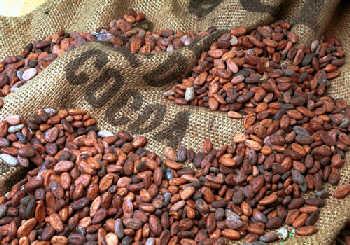Who is not suitable for drinking coffee healthily?
1. Patients with high blood pressure: coffee contains caffeine, which can raise blood pressure in some sensitive patients.
two。 Patients with renal failure: if patients with renal failure have the phenomenon of hyperkalemia, they need to cooperate with a limited potassium diet, and coffee with high potassium content should not be drunk.
3. Patients with peptic ulcer: caffeine stimulates gastric acid secretion and relaxes the smooth muscle vessels of the digestive system, accelerating food metabolism and reducing the nutritional value of food.
4. Patients with diabetes: caffeine can reduce insulin secretion in the pancreas, reduce glucose tolerance, increase insulin excretion and increase blood sugar.
5. Patients with epilepsy: caffeine can stimulate the brain power center, xanthine will constrict blood vessels and reduce blood flow to the brain. It is very disadvantageous to patients with epilepsy.
6. Heart disease patients: coffee will increase the content of fat and triglycerides, increase the burden of the heart and oxygen consumption. Especially when the body is tired and excessive smoking is more likely to cause side effects.
7. Patients with iron deficiency anemia: coffee accelerates food metabolism and reduces iron absorption.
8. Kidney stone patients: to prevent the recurrence of calcium oxalate stones, it is necessary to abstain from foods rich in oxalic acid. Coffee is a food rich in oxalic acid.
9. Insomniacs: long-term drinking coffee will affect the sedative effect, increase the number of wakefulness, and make the sleep depth shallower.
10. In addition to the above several diseases patients can not drink coffee, healthy people may not be suitable for drinking coffee, such as pregnant women, breast-feeding women: caffeine will affect the fetus's nutrient and oxygen intake, so pregnant women had better not drink caffeinated drinks. If you drink coffee during lactation, irritants such as caffeine will enter the baby's body through breast milk, resulting in adverse effects on the baby's growth and development, so do not drink coffee three months after delivery.
Athletes drinking coffee can also produce discomfort or pathological phenomena.

Important Notice :
前街咖啡 FrontStreet Coffee has moved to new addredd:
FrontStreet Coffee Address: 315,Donghua East Road,GuangZhou
Tel:020 38364473
- Prev

The basic knowledge of coffee beans the purchase and preservation of coffee beans
Freshness is the life of coffee how to determine the freshness of coffee beans there are three steps: smell, see, peel. ◎ smells the coffee beans close to his nose and smells deeply to see if he can clearly smell the aroma of the coffee beans. If so, it means the coffee beans are fresh enough. On the contrary, if the aroma is weak, or if the smell is already greasy (like peanuts or nuts for a long time)
- Next

The main producing area of coffee basic knowledge and high-quality coffee beans
Today, there are more than 100 varieties of coffee, but more than 100 kinds of coffee are all derived from Arabica coffee, Robbda coffee and Liberian coffee, which come from different countries as follows: Brazil is the largest coffee producer, and various grades and types of coffee account for 1/3 of the global consumption and occupy a place in the global coffee market.
Related
- Beginners will see the "Coffee pull flower" guide!
- What is the difference between ice blog purified milk and ordinary milk coffee?
- Why is the Philippines the largest producer of crops in Liberia?
- For coffee extraction, should the fine powder be retained?
- How does extracted espresso fill pressed powder? How much strength does it take to press the powder?
- How to make jasmine cold extract coffee? Is the jasmine + latte good?
- Will this little toy really make the coffee taste better? How does Lily Drip affect coffee extraction?
- Will the action of slapping the filter cup also affect coffee extraction?
- What's the difference between powder-to-water ratio and powder-to-liquid ratio?
- What is the Ethiopian local species? What does it have to do with Heirloom native species?

